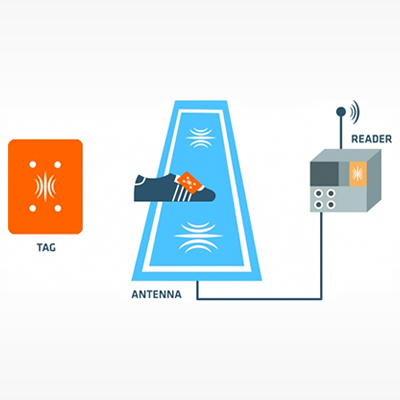Sports Venue Analytics: Leveraging Data for Fan Engagement and Operations

In the world of sports, the thrill of the game is not only about the players on the field but also about the experience of the fans in the stadium. As technology advances, sports venues are increasingly turning to data analytics to enhance fan engagement and improve operational efficiency. The integration of data analytics has revolutionized the way sports venues operate, creating a more immersive and enjoyable experience for fans while optimizing various aspects of stadium management.
Understanding Sports Venue Analytics
Sports venue analytics refers to the collection, analysis, and interpretation of data related to fan behavior, preferences, and stadium operations. By leveraging various data points such as ticket sales, fan demographics, social media interactions, and in-stadium movements, sports organizations can gain valuable insights into fan engagement and preferences. These insights are then used to tailor the stadium experience, create targeted marketing campaigns, and optimize operational processes, ultimately leading to a more enjoyable and efficient experience for both fans and staff.
Enhancing Fan Engagement through Data Analysis
One of the primary benefits of sports venue analytics is its ability to enhance fan engagement. By analyzing data on fan preferences, behaviors, and feedback, sports organizations can personalize the fan experience and create targeted marketing strategies. For example, by understanding which amenities or food options fans prefer, stadiums can tailor their offerings to meet specific demands, thus enhancing overall fan satisfaction.
Moreover, data analytics can help in creating interactive experiences within the stadium. Through the use of mobile applications and in-stadium Wi-Fi, fans can access real-time statistics, player information, and interactive games, fostering a more immersive and engaging experience during the game. This not only keeps the fans entertained but also encourages them to stay longer and remain more connected to the event, ultimately leading to increased fan loyalty and satisfaction.
Optimizing Operations and Improving Efficiency
Aside from enhancing fan engagement, sports venue analytics can also optimize operational processes within the stadium. By analyzing data on stadium attendance, traffic flow, and concession sales, stadium managers can make informed decisions to streamline operations and improve overall efficiency. For instance, by understanding peak attendance hours and popular concession items, stadiums can adjust staffing levels and inventory to ensure smooth and efficient operations during events, thereby reducing waiting times and improving overall fan satisfaction.
Furthermore, data analytics can be instrumental in ensuring the safety and security of fans within the stadium. By monitoring crowd movements and identifying potential security threats, stadium management can implement proactive security measures to ensure a safe and secure environment for all attendees. This not only enhances the overall fan experience but also creates a positive and secure image for the sports organization.
Challenges and Future Trends
Although the use of sports venue analytics brings forth a plethora of advantages, organizations often encounter obstacles while implementing data-driven strategies. These obstacles encompass concerns surrounding data privacy, difficulties in integrating data, and the necessity for proficient data analysts capable of deciphering intricate data sets. Successfully surmounting these challenges necessitates a holistic approach, prioritizing data security, ensuring smooth integration of various data sources, and making substantial investments in the training and development of staff members.
Looking forward, the prospects for sports venue analytics are promising. With continuous technological advancements, the integration of artificial intelligence and machine learning is poised to amplify the capabilities of data analytics in sports venues. Predictive analytics can forecast fan behavior and preferences, empowering stadiums to proactively tailor their offerings and services to meet the evolving demands of fans. Moreover, the incorporation of virtual reality and augmented reality technologies can create a more immersive and interactive fan experience, blurring the boundaries between the physical and digital realms of sports entertainment.
The Importance of Fan Feedback and Community Building
In the realm of sports venue analytics, one crucial aspect often emphasized is the collection and analysis of fan feedback. By actively soliciting and analyzing fan feedback, sports organizations can gain valuable insights into fan satisfaction, preferences, and areas for improvement. This information can then be used to implement necessary changes, address fan concerns, and further enhance the overall fan experience. Moreover, fostering a sense of community among fans through various engagement initiatives, such as fan forums, exclusive events, and social media interactions, can create a loyal and passionate fan base, contributing to the overall success and sustainability of the sports organization.
Creating Sustainable Business Models
Sports venue analytics also play a pivotal role in creating sustainable business models for sports organizations. By analyzing revenue streams, cost structures, and fan engagement metrics, stadiums can develop effective strategies to maximize revenue generation while minimizing operational costs. This may involve optimizing ticket pricing based on demand, implementing targeted marketing campaigns to boost merchandise sales, and forging strategic partnerships to enhance sponsorship opportunities. By leveraging data-driven insights, sports organizations can create sustainable business models that ensure long-term financial stability and success.
Embracing Ethical and Responsible Data Practices
In the era of data-driven decision-making, ethical and responsible data practices are of utmost importance. Sports organizations must prioritize data security and privacy, ensuring that fan data is collected and utilized in a transparent and responsible manner. Implementing robust data security protocols, obtaining explicit consent for data collection, and adhering to relevant data protection regulations are essential steps in fostering trust and confidence among fans. By prioritizing ethical data practices, sports organizations can build stronger relationships with fans, fostering a sense of trust and loyalty that contributes to the long-term success and sustainability of the sports venue.
The Ongoing Evolution of Sports Venue Analytics
As sports venue analytics continue to evolve, the integration of data-driven strategies is expected to become increasingly prevalent across various aspects of sports management and fan engagement. From personalized marketing campaigns to seamless stadium operations and enhanced fan experiences, the possibilities for leveraging data in sports venues are endless. By embracing innovation and staying attuned to the evolving technological landscape, sports organizations can remain at the forefront of the industry, providing fans with unforgettable experiences and creating a lasting legacy in the world of sports entertainment.
In Conclusion
Sports venue analytics have transformed the landscape of sports entertainment, revolutionizing the way fans engage with their favorite teams and stadiums. By leveraging data insights, sports organizations can create immersive and personalized experiences for fans while optimizing operational processes to ensure efficiency and safety. As the sports industry continues to embrace technological advancements, the future of sports venue analytics holds limitless potential, promising an era of unparalleled fan engagement and memorable sporting experiences for fans worldwide.





